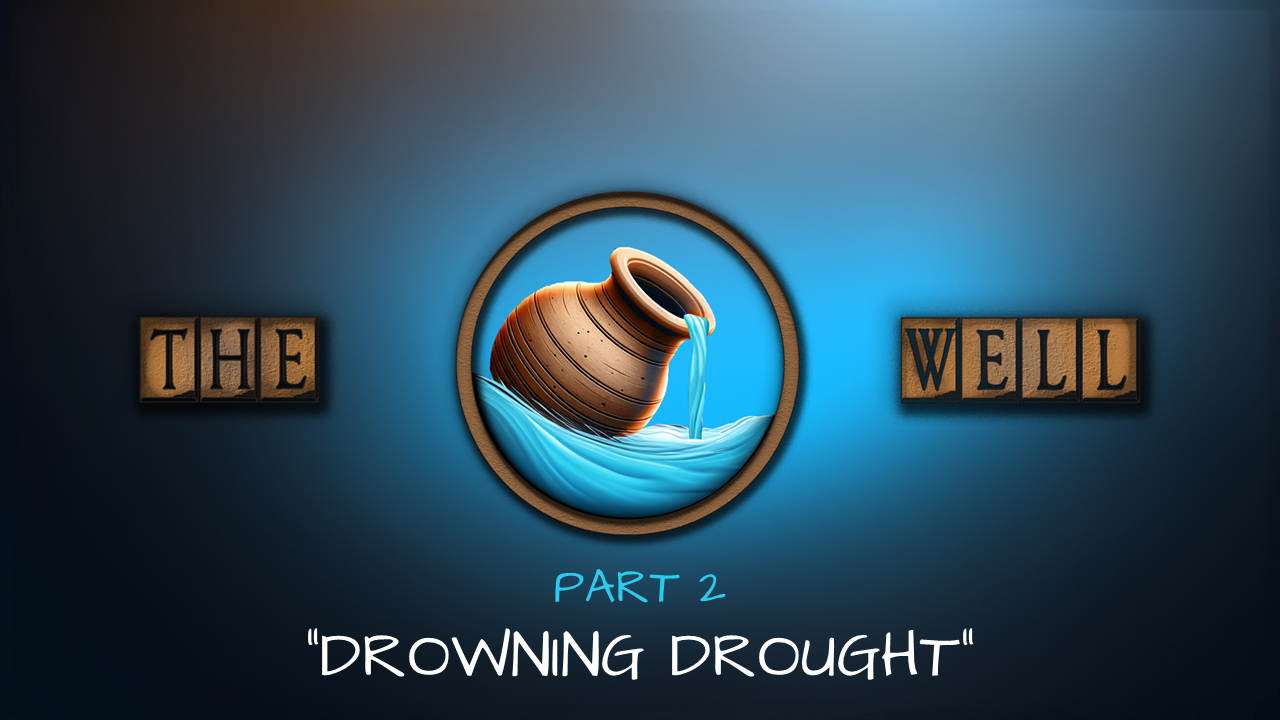The WellSampel


As we continue seeing life from her perspective, consider the last time you were in a “Living Drought”. How did it affect your feelings, thoughts, actions, or relationships? Is it easy or difficult for you to imagine the despair this woman would’ve been dealing with? Imagine what it was like to be rejected by 5 husbands (specifically in that timeline).
Put yourself in her shoes as a Samaritan woman. You can’t own land or get a job. To be rejected by your spouse would be devastating enough, but then to add to it, you cannot provide for your own needs. You marry again and are rejected again. After 5 failed marriages, you decide to forget the idea of marriage and just live with a man.
It may have been the ONLY way you could have your basic needs provided for, but because of you are living with someone to whom you are not married, even the “unclean” Samaritans reject you. The women in this timeline would’ve gathered water early in the morning, while it’s still in the cool of the day. This would be a perfect time to find meaningful connection. This was the “social hour” for women, but you can’t go there because of your “unclean” status, even among the Samaritans.
You can’t go with anyone, so you go to the well at noon in the heat of the day (when no one else is there), to draw some water. You see a man sitting there by the well, exhausted. As you get closer, you realize he’s not one of your own… he’s a Jew! What is he doing here?
That’s when the exhausted man that “had to go through Samaria” speaks: “Will you give me a drink?”
In one sentence, Jesus breaks down the barriers of racism, sexism, class order… every possible division that was present for centuries by simply asking for a drink. Imagine how baffling it would be to hear Jesus’s voice, speaking to you.
This dialogue marked the beginning of the end for the “Living Drought” within this woman’s soul. The encounter she had with Jesus changed her life. In fact, this rejected Samaritan woman was one the first encounters where Jesus revealed his identity as the Messiah!
How did Jesus drown the “drought”?
There are 3 things Jesus did in the dialogue you’re about to read:
1) Jesus recognized her as an “image-bearer”.
Jesus defined her before the culture even knew her. Her identity was given to her long before she was born. Isn’t it incredible to know that there is nothing in this world that can redefine you?
2) Jesus doesn’t just hear WHAT she said; he heard the cry of her heart.
Jesus “had to go through Samaria” for a reason. It wasn’t because he was thirsty. He knew when the woman would be drawing water from the well. Jesus was there at the right time for this encounter at noon. He knew exactly what she needed to end the drought, and her life was forever changed as a result.
3) He shed light on the truth.
Jesus didn’t ignore the fact that she was living in sin. He directly stated it. When light shines in the darkness, the darkness will not overcome it. It’s important to remember that to end the “Living Drought”, you must be willing to confront the truth about who you are and the way you are living.
Are you ready to drown the “drought”?
Remember: the world will leave us feeling empty, but God’s Living Water will never stop flowing!
Take some time in prayer for your heart to be softened to God’s plans for you, and to be filled with this Living Water today. Ask God to open your eyes to see those around you that need this Living Water in their lives.
Firman Tuhan, Alkitab
Tentang Rencana ini

She was at the end of her rope. Feeling empty from her guilt and shame, she found herself incredibly lonely and in despair. How do we find hope when we’re living in despair? The answer is found in the story of “The Woman at the Well” in John chapter 4, in what we call a "Perspectives Study".
More
Rencana Terkait

Warisan Ilahi

1 Year Bible Reading – The Year of Preparation

Melayani Tuhan Dengan Sepenuh Hati

Dalam Kristus Saya adalah Anak Allah

Persembahkanlah Tubuhmu

Saya Sahabat Kristus

Lagu Kebangsaan: Kasih Karunia dalam Kisahmu

Kenapa Tuhan Memanggil Kita

Mencari Ketenangan Dalam Kegelisahan Dunia Kerja
